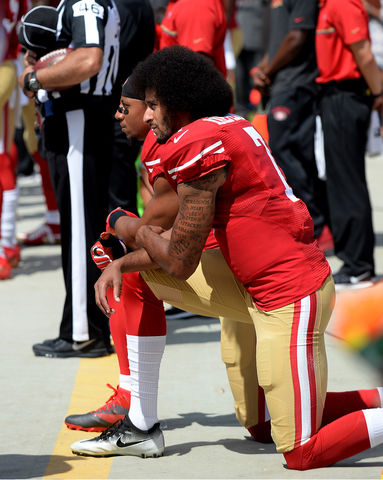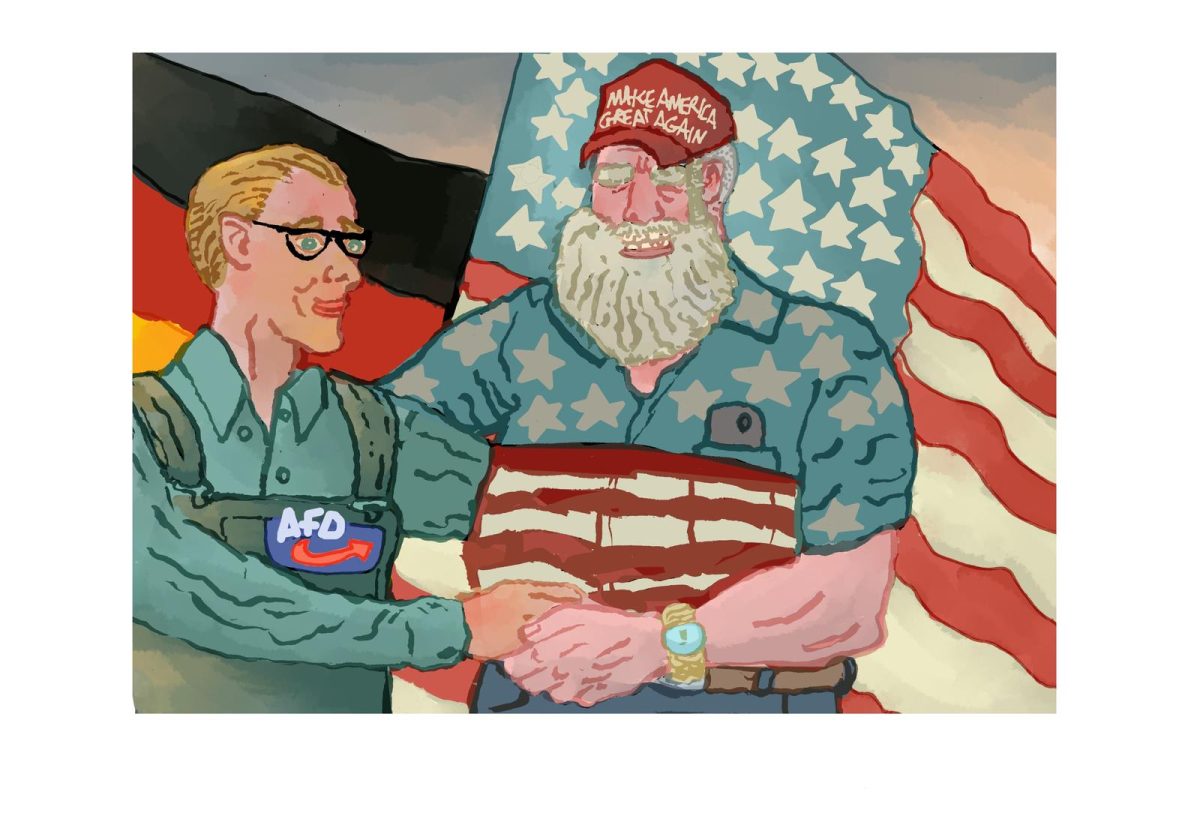When former San Francisco 49ers quarterback Colin Kaepernick chose to kneel instead of standing during the national anthem last season in protest of police brutality, he received a great deal of criticism. Last week he got it from a very particular source: President Donald J. Trump.
Instead of acknowledging the problem, or ignoring it altogether, Trump decided to condemn the protests at a rally in Alabama, calling athletes like Kaepernick who have since joined the protest “sons of b——,” and suggesting the NFL should fire athletes who kneel during the anthem.
Seemingly missing the point behind the protests, Trump called it a “disrespect to our great American flag,” and a “total disrespect of our heritage, a total disrespect of everything that we stand for.” He also implied that it ruins the game when “you see those people taking the knee when they play our great national anthem.”
Who is Trump talking to, or about, when he says “our” and “we” and “those people”?
Let us recap: in August, Trump implied that some of the white supremacists that marched in Charlottesville, Virginia, a march that resulted in the death of a civil rights activist, were “very fine people” and implied there were faults “on many sides.” A month later, he called black athletes that peacefully protest racism “sons of b——,” and fired off several angry tweets suggesting that they should be thankful for the “privilege of making millions of dollars.”
Similarly, Stevie Wonder kneeling during a concert prompted a tweet from former Republican Congressman Joe Walsh, calling him “another ungrateful black multi millionaire.”
Who is he ungrateful to?
Whose “heritage” was Trump talking about?
Let’s be clear, this protest was never about the flag, it is about racial injustice. At the beginning of his protest in 2016, Kaepernick told NFL media “I am not going to stand up to show pride in a flag for a country that oppresses black people and people of color.”
“There are bodies in the street and people getting paid leave and getting away with murder,” he said.
The notion that black celebrities who choose to protest injustice are “ungrateful” is not only incredibly degrading, not to mention wrong, but also very telling of the mindset of Trump and his supporters; it implies that a black professional athlete’s wealth and success isn’t earned, but rather given to him or her.
There is this perceived ownership of black culture, and black people in particular. Black people are here for our entertainment. Black people are celebrated when they contribute to our entertainment. But a black person with a voice? The First Amendment seemingly no longer applies. People rallying in the name of white supremacy elicited an awfully untroubled attitude from Trump, but when a black athlete knelt on a field, he was a “son of a b—-.”
This isn’t about disrespecting the flag; black people know what the flag represents because they have sacrificed for it more than anyone. Let’s not forget that African Americans have also fought and died for this country that discriminated against and oppressed them upon their return. You can argue that if there’s anyone who has the right to voice their opinion and speak out against injustice in America, it is African Americans.
Time and time again black people have needed to prove their patriotism, but why? Are they not as American as their white neighbors? Have we forgotten that patriotism comes in more than one form? Athletes using their constitutional rights to peacefully protest against injustice is, precisely, patriotism. The American flag is not just about U.S. history; it is about ideals and values.
Incidentally, Kaepernick’s protest of the lack of justice and equality is ironically mirrored in the criticism he has received for it. “Unpatriotic” was one of the “nice” things people were calling him on social media at the outset of his protest.
The act of protesting, regardless if it is violent or nonviolent has never been equal between races. Black people protesting in the streets are called thugs; black people protesting via social media are told they should lose their jobs (e.g. ESPN’s Jemele Hill); black performers, like Beyoncé, and black athletes, like Kaepernick, are pushed to “stay out of politics and be grateful.”
It is as if they not only forgo their constitutional rights in return for what “America has given to them,” but their rights as citizens and human beings as well. It is no different than telling a construction worker or a chef that they cannot have a political or cultural opinion.
Protest is uncomfortable. The African American students who sat down at lunch counters during the Civil Rights Movement weren’t cheered on. There is never a way to protest that people are unanimously comfortable with, but that shouldn’t take away their right to do so.
So my question is this, when will it ever be OK for a black person to protest in America?






